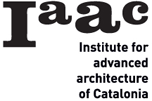This author talks about the beginnings of the form with a particular scientific and artistic vision at the same time. The lecture is base of that Deleuze believes that the form is not spontaneous and the process is the most important on the existent of the form. In this text he start talking about his [...]
Monthly Archives: November 2013
Deleuze and the genesis of the form by Manuel de Landa.
Unlearning & Learning
quote: http://matsysdesign.com/, 25th of Nov. 2013 Machine, the most creative device in the beginning 20-century. It is supposed being asked to do anything, which the mission ordered, by human, or rather saying that [...]
RHIZOMATICS
Rhizome Radar by Peter Nowicki It is hard to identify what is the central theme of the Duleuze’s and Guattari’s A Thousand Plateaus: Capitalism and Schizophrenia, but perhaps suggesting centrality is probably the opposite of the message the book advocates. The book is a distinctive model both in it’s ‘non-structured’ writing methodology but also in [...]
Redefining the Origin
Source: http://loveit.com/loves/P0BYYyrs7EmbZIUgD2ME0sF The essay “Deleuze and the genesis of form” is written by Manuel DeLanda. Based on the Philosophy of Gilles Deleuze. Deleuze contradicts the western philosophy and its take on genesis of form. In the western philosophy, form is conceived by the external forces rather than the internal forces and the properties [...]
Symbiosis of Architecture and Machine
In the book, The Architecture Machines written in 1969, Nicholas Negroponte proves to be a visionary propagating the school of machinic thought and digitisation in architecture. The author begins the chapter questioning the credential of division of creative labour when machine is introduced not only to perform programmed function but also to find solutions in [...]
